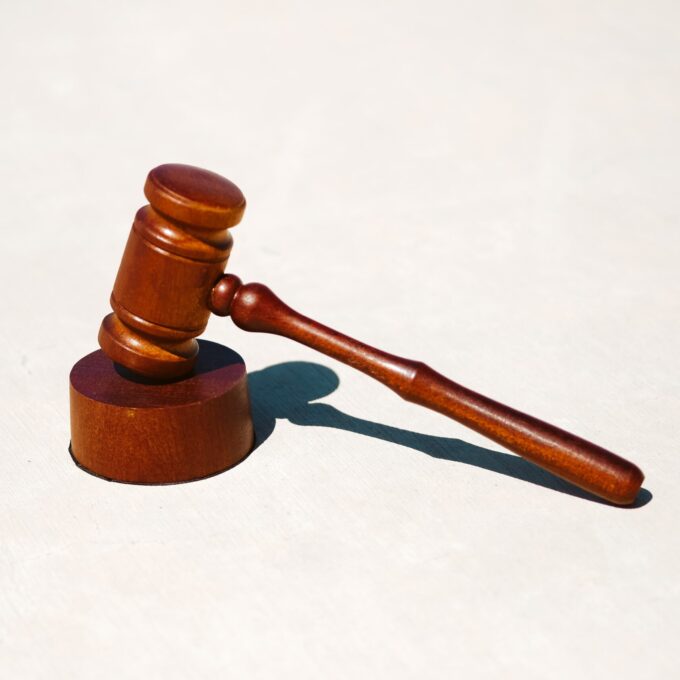Publications 23.05.2025
Liability of a board member and a bankruptcy petition – Supreme Administrative Court ruling

According to Article 116 § 1 of the Tax Ordinance (O.p), members of the management board of a limited liability company, a limited liability company in organisation, a joint-stock company, or a joint-stock company in organisation are jointly and severally liable with all their assets for the company’s tax arrears, including in cases where they fail to demonstrate that a bankruptcy petition was filed. In the case under discussion, the chairman of the management board took the view that if the company is in arrears only to one creditor, it is not obliged to file a bankruptcy petition. According to the chairman, the Bankruptcy Law (u.p.u.n.) regulates the procedure for joint claims enforcement by creditors (at least two) against insolvent debtors. From this, it was argued that the board member is exempt from liability if the company owes debts to only one creditor. Tax authorities and courts did not share this position.
Dispute with the tax authorities over board member liability
On 5 October 2020, the Director of the Tax Administration Chamber in Warsaw issued a decision establishing the joint and several liability of a third party together with the company for the company’s tax arrears in VAT for certain months of 2014. The chairman of the management board appealed the decision to the Provincial Administrative Court in Warsaw. The court dismissed the appeal by judgment dated 8 November 2021, case no. I SA/Wa 2243/20, and ultimately the case was brought before the Supreme Administrative Court through a cassation appeal.
In the appeal, the chairman argued, among other things, a violation of Article 1 paragraph 1 of the Bankruptcy Law in connection with Article 116 § 1 of the Tax Ordinance due to erroneous interpretation by the first-instance court, which stated that in mid-July 2014 the company met the criteria for bankruptcy, whereas the company had only one creditor. According to the appellant, this meant that the grounds for bankruptcy were not met, since the Bankruptcy Law regulates the enforcement of claims by creditors jointly (at least two) against insolvent debtors. The appellant also alleged misinterpretation of Article 116 § 1 point 1b of the Tax Ordinance and upheld by the first-instance court’s decision confirming his liability for the company’s tax liabilities. The appellant argued that the failure to file the bankruptcy petition on his part (acting on behalf of the company) during his tenure on the board was without fault, as the company did not meet the conditions for bankruptcy, and any petition for bankruptcy would have been dismissed.
Supreme Administrative Court’s position – board member liable if petition not filed
The Supreme Administrative Court upheld the interpretation of the tax authorities and the Provincial Administrative Court, stating that insolvency of the debtor, as referred to in Articles 10 and 11(1) of the Bankruptcy Law, also applies when the debtor fails to satisfy even a single creditor holding a significant claim. Accepting that a board member is exempt from the obligation to file a bankruptcy petition where the company is in arrears only to one creditor would place in a privileged position those board members whose companies had only one creditor – the State Treasury – compared to those with at least two creditors. This would result in obviously unequal treatment of board members (third parties) depending on how many creditors the companies they managed had, and weaken the guarantee function of third-party liability. Therefore, even failure to meet due obligations to a single creditor does not exempt the board member from the duty to file a bankruptcy petition.
The court supported its position with extensive case law, including the Supreme Administrative Court’s judgment of 23 June 2021, case no. III FSK 75/21, which clarified that the condition set out in Article 116 § 1 point 1 of the Tax Ordinance relates solely to the filing of the petition, not its outcome, i.e. the declaration of bankruptcy. The petition must be filed once the insolvency criteria under Articles 10 and 11 of the Bankruptcy Law arise. Therefore, if the debtor fails to fulfil its due obligations, such a petition must always be submitted without anticipating whether it will result in bankruptcy being declared. Hence, the subjective belief of the chairman that a bankruptcy petition would be dismissed due to lack of grounds did not release him from the obligation to file it.
Rely on the experts
Interpreting the provisions of the Bankruptcy Law poses many difficulties for entrepreneurs, and the above judgment shows that even a single overdue debt can lead to personal liability of a board member with all their assets. ATL Law represents clients in bankruptcy proceedings as well as restructuring processes. Our legal advisers support businesses meeting the criteria for bankruptcy proceedings/restructuring, bankruptcy trustees, court supervisors, managers, and creditors. We invite you to learn more about our offer.
Publications 23.05.2025
See also
Publications

A mistaken transfer can be costly. From whom can you seek a refund? Supreme Court ruling.
Publications

The Polish Deal in a nutshell – summary of changes in taxes and labour law
Publications
The free acquisition of assets from non-registered companies by the State Treasury is unconstitutional.